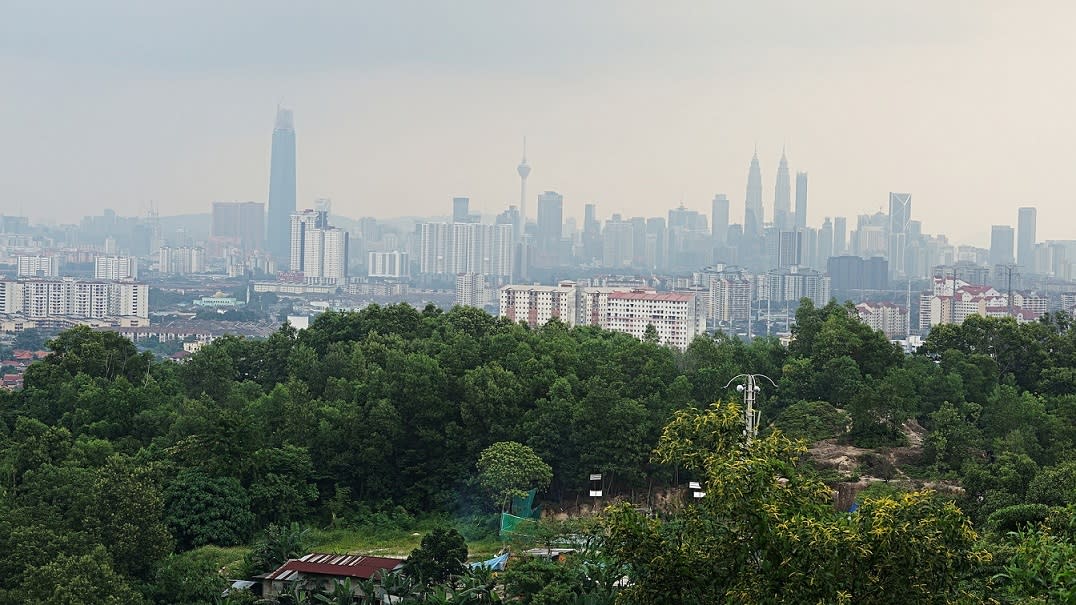Climate change: Humanity’s existence dependent on benign and hospitable climate that nourishes all

During man’s early existence, climate change was due to natural cosmic and terrestrial phenomena, such as tectonic movements that shifted continents and displaced waterways, and currents turning verdant lands into arid zones.
Solar wind lashing the stratosphere affected terrestrial winds, causing a change in wind patterns.
The last glacial epoch ended about 11,550 years ago, ushering the Holocene, the current geological epoch. During the various epochs of the Ice Age, Homo Sapiens were confined to the lower latitudes. The climate was stable at the beginning of the current Holocene epoch.
When the first civilisation, Mesopotamia, appeared around the beginning of recorded history (3,100 BC), the climate was pristine; man and the environment existed in harmony. Changes were affected by natural phenomena, such as volcanic eruptions, and solar turbulence. The forest cover was untouched and intact, rivers and seas were free of pollution, and man sourced his food from these natural features, without any adverse impact on the environment.
But with the development of technology through man’s ingenuity, he began to destabilise the natural ecosystem, impacting the climate and the environment. The advent of the industrial age, especially in the use of coal for industrial and domestic use, impacted adversely on the environment and the people’s wellbeing.
Land use for agriculture, mining, human habitations, and industry resulted in the loss of forest cover, river, and air pollution. The negative impact went unnoticed. The increases in the ambient temperature causing drought, flooding, shifting sea currents (La Nina) were assumed to be natural phenomena.
Nobody thought about climate change, merely perceiving these phenomena as seasonal variations. Nature would correct itself, making the planet liveable forever.
But as the pace of development increased exponentially to meet the demand of the increasing world population for food, shelter, industry, urban development, mining, and extraction of fossil fuels and other amenities, the environment and natural terrestrial resources began to deplete. The earth became stressed, and its ability to ‘renew’ and sustain itself was compromised, resulting in terrestrial and atmospheric imbalance.
As a result, the earth has been warming, but began to be noticed at the beginning of this century, with the pace increasing mid-century, and accelerated especially in the new millennium.
This has increased carbon emissions and the human carbon footprint throughout the globe, caused primarily by automobile and industrial emissions, deforestation, and other forms of fossil fuel burning that release pollutants into the atmosphere.
The consequence of rising temperatures is the melting of glaciers, which have thinned or retreated.
Studies have shown that 5,000 gigatonnes (1 gigatonne equals 1 billion tonnes) of ice have been lost from the surface of Greenland over the past two decades, causing an increase in sea levels. The release of fresh water from the glaciers into the seas upset the flow and patterns of sea currents, which in turn, caused unseasonal floods and droughts.
Climate change has now taken a serious tone, prompting the United Nations to address these life-threatening issues with the setting up of COP (Conference of the Parties), an organisation that co-opts governments and industries to address the issues of the ever-increasing carbon footprint, the result of hydrocarbon emissions.
The proposal is to limit global warming to 1.5 degrees Celsius to sustain life and minimise the degradation of the environment caused by natural disasters such as floods, drought, and forest depletion.
Currently, climate change has become a hot topic of international concern. Conferences and seminars on climate change have been held to parlay on ways to limit global warming, and to reduce hydrocarbon emissions caused by the burning of fossil fuels from industrial usage, vehicular emissions and, human consumption.
Initial initiatives have started replacing fossil fuels with renewable clean energy, namely, hydro, solar, winds, waves, geothermal, hydrogen, and biomass. But the mainstay remains fossil fuels. Oil companies will promote their use because of the enormous profits it brings to the oil and gas industry.
Discussions abound about the transition to clean energy and low-emission products, and eventually to net zero emissions – carbon neutrality. But this is mostly rhetoric, as the economic cost of transitioning to clean energy will cause economic disruptions and destabilise economies dependent on oil and gas as their major source of national income.
The world will continue burning fossil fuels because of the influence of multinational corporations in the oil and gas industry. They are not about to relinquish their monopoly on the industry and forgo the enormous profits they make.
It will take a long time before we wean off fossil fuels and replace it with clean green energy. It will only happen when big corporations and governments can control this energy, and exert their influence on the rest of the world, instead of focusing on raking in huge profits.
For now, countries are not doing enough to reduce carbon emissions. The use of clean and green energy is being parlayed as mere rhetoric.
We must therefore live with the prospect of global warming and increasing carbon emissions that will certainly lead to future catastrophes and endanger the existence of future generations, and eventually, all of mankind.
Humanity’s existence is dependent on a benign and hospitable climate that nourishes all of God’s creatures.
The views expressed here are the personal opinion of the writer and do not necessarily represent that of Twentytwo13.
The post Climate change: Humanity’s existence dependent on benign and hospitable climate that nourishes all appeared first on Twentytwo13.


